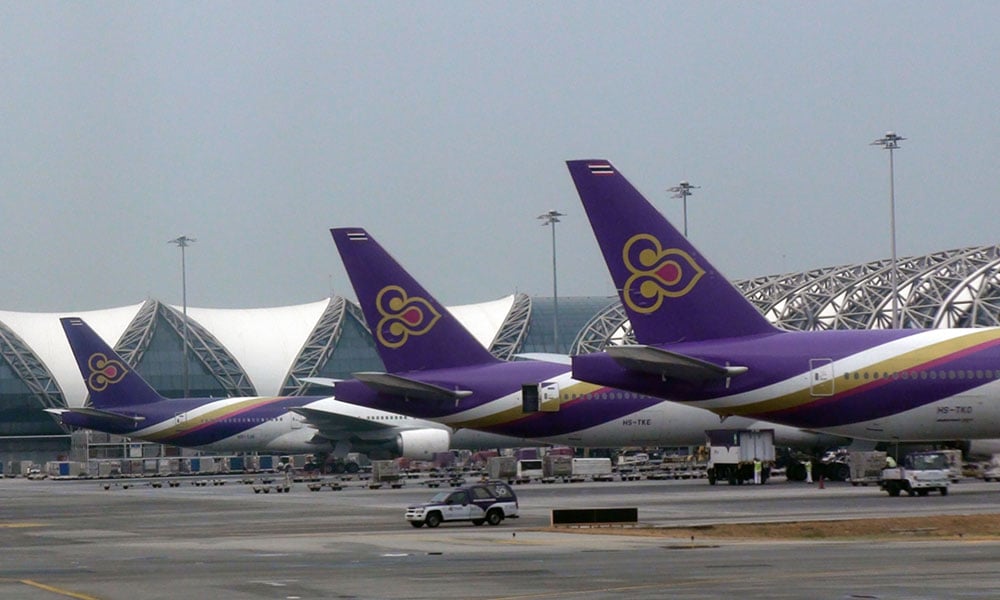
The airline is the first in Asia to be forced into a 'debt restructuring' plan

Thai Airways is the first airline in Asia to file for bankruptcy in an industry hard-hit by the COVID-19 crisis.
The authorities had approved a ‘rehabilitation’ plan to allow the firm to manage their overwhelming debts.
The “difficult decision” will enable the airline to implement a restructuring of the organisation and work towards recovery, instead of the initial strategy to take on a government loan.
“The government has reviewed all dimensions,” Prime Minister Prayut Chan-o-cha told Bangkok Post. “We have decided to petition for restructuring and not let Thai Airways go bankrupt. The airline will continue to operate.”
According to the Post, filing for bankruptcy will ensure the country’s national carrier gets an ‘automatic stay’ or a hold off from debt collection by creditors. All creditors will be forced to acknowledge their restructuring plan.
The country’s Central Bankruptcy Court will take charge of managing negotiations between the different parties.
READ MORE: COVID-19: 5 questions for business leaders
“The prime minister has stressed the need to make the public understand that this is not about entering bankruptcy, but undergoing a process of rehabilitation,” said government spokesperson Narumon Pinyosinwat.
Rehabilitation is “good for a company” with huge debts because it will not have to cease operations or sell off its assets, explained Deputy Prime Minister and Public Health Anutin Charnvirakul, who oversees the Transport Ministry.
Thai Airways recorded a net loss of 11.6 billion baht in 2018 and 12 billion baht in 2019. For the first half of this year, the airline is projected to record a loss of 18 billion baht due to the impact of the pandemic.
The carrier’s labour union supported the idea to rehabilitate the airline. They had also agreed with initial bailout plans, although this was scrapped.
However, they strictly opposed anything that would affect employees’ benefits and welfare. The Post reported that the union’s announcement fuelled public anger.
In any case, whatever happens to employees, one industry expert told HRD that whether retrenchments are in the books or not, it all comes down to communication.
“The way you tell people is the way they’ll react,” he said. “If people are told badly, then they’re going to react badly.
“If they’re told well and they’re really prepared for the change, then, generally, it has a very positive effect when people have to leave. So people don’t mind honesty, they don’t mind the harsh realities, but they don’t like to be treated badly.”